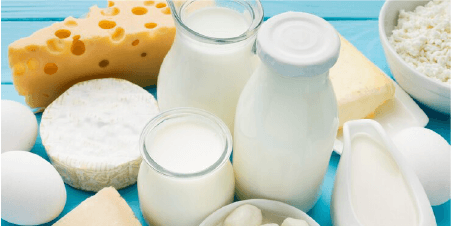
The safety of dairy products in the Kenyan market is affected by numerous factors, including poor handling, storage, processing, and packaging. Pasteurisation,
being part of the processing that has been made mandatory in Kenya, plays a crucial role in improving food safety within the value chain.
In the Kenyan dairy sector, pasteurizer machines play a significant role in ensuring food safety by effectively treating dairy products to reduce or eliminate harmful microorganisms. The pasteurisation process is particularly important in Kenya due to the prevalence of raw milk consumption and the need to minimise the risk of milk-borne diseases.
The primary purpose of pasteurisation is to destroy pathogenic bacteria, yeast, moulds, and other microorganisms that may be present in food. By subjecting the milk to a specific temperature for a specified time, the pasteurizer can effectively kill or inactivate these microorganisms, making the product safer for consumption.
The pasteurizer is designed to ensure uniform heat distribution throughout the product, preventing the formation of any potential cold spots where microorganisms could survive. Techwin Limited, a local Kenyan dairy equipment manufacturer, is known for designing and installing quality milk pasteurizer machines that improve efficiency. Pasteurizers can be used at the farm level, in dairy cooperative collection centres, by milk bulkers, and by processors. By utilising a pasteurizer in your dairy business, you stand to improve the food safety of the products you sell through the following ways:
Pathogen Reduction: The heat treatment kills or reduces the numbers of pathogenic bacteria such as Salmonella, Listeria, and E. coli, making the food safer for consumption.
Hygienic Milk Supply: In Kenya, the dairy industry faces challenges related to poor hygiene practices in milk production and handling. Pasteurisation helps address these issues by ensuring that the milk supplied to consumers meets specific safety standards. Milk from various sources can be pooled and treated in a pasteurizer to achieve a consistent level of microbial reduction.
Spoilage Prevention: Pasteurization also helps to destroy spoilage-causing microorganisms, extending the shelf life of the product and reducing the risk of foodborne illnesses.
Preservation of Nutritional Quality: The pasteurisation process is carefully controlled to minimise the impact on the nutritional value, taste, and sensory qualities of the food or beverage.
Regulatory Compliance: The Kenyan dairy sector is regulated by the Kenya Dairy Board (KDB) and the Kenya Bureau of Standards (KEBS). These organisations set standards and regulations for milk and dairy product safety. Pasteurisation is often a requirement to comply with these regulations, ensuring that dairy products meet the necessary safety criteria before they reach the market.
Consumer Confidence: Pasteurization provides consumers with assurance regarding the safety of dairy products. By implementing pasteurisation processes, dairy processors and manufacturers can build trust with consumers and demonstrate their commitment to producing safe and high-quality dairy products.
It is worth noting that the effectiveness of pasteurisation relies on several factors, including the proper operation and maintenance of pasteurisation equipment, adherence to the recommended temperature and time parameters, and good overall hygiene practices throughout the dairy supply chain. Regular monitoring and testing of pasteurised products are also essential to ensure ongoing food safety. Through organisations such as Techwin Limited, dairy processors and entrepreneurs using these pieces of equipment are usually trained on the best dairy processing practices and how to use pasteurizers to limit contamination during milk handling.
However, it is important to note that pasteurisation is not a sterilisation process. It may not eliminate all types of microorganisms. Therefore, it is necessary to handle pasteurised products properly and maintain good manufacturing practices to prevent post-pasteurization contamination. Additionally, seeking advice from experts within the value chain, such as Techwin Limited, can help you determine which dairy equipment is right for your business setup.
Overall, pasteurizers in the Kenyan dairy sector play a crucial role in enhancing food safety by reducing microbial risks, extending product shelf life, complying with regulations, and instilling consumer confidence in the quality and safety of dairy products.
